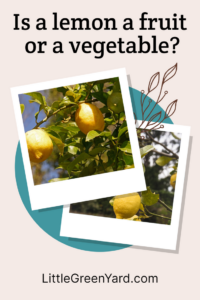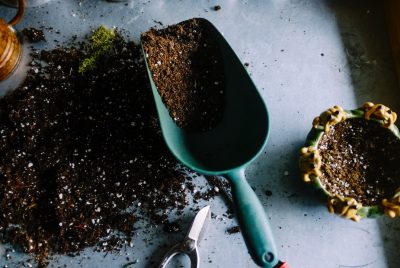Is a lemon a fruit or a vegetable?
Hey there, fellow curious minds! Have you ever found yourself pondering the intriguing question: Is a lemon a fruit or a vegetable? Well, you’re not alone! Join me on this delightful journey as we unravel the citrusy mystery together. And guess what? The answer might just leave you with a zest for knowledge!
Lemon – The Zesty Conundrum
Before we embark on our enlightening adventure, let’s address the elephant in the room – is a lemon a fruit or a vegetable? The truth is that a lemon is undoubtedly a fruit. Despite its tangy, sometimes slightly savory taste, lemons belong to the citrus family of fruits. Lemons have been a part of human history for centuries. Originating in Southeast Asia, they have traveled across the globe, leaving their tangy mark on cuisines and cultures. From ancient medicinal uses to being employed by sailors to prevent scurvy, lemons have played diverse roles throughout history.

Lemons have a long history of being used for their healing properties. Beyond their culinary applications, they are a common ingredient in home remedies. Mixing lemon juice with honey and warm water is a time-tested concoction for soothing sore throats, while lemon-infused water is often enjoyed for its detoxifying effects.
Lemon’s Remarkable Beginnings: Growing Your Own Citrus Haven
Now let’s go into more details about growing and harvesting lemons. If you’re a gardening enthusiast like me, you’ll be thrilled to know that lemons can flourish right in your backyard. Here’s how to get started:
Choosing the Right Variety
Lemons come in an array of varieties, each offering a unique blend of flavor, aroma, and characteristics. When selecting lemon trees for your garden, opt for a variety that suits your climate. while Eureka and Lisbon lemons thrive in warmer zones, Meyer lemons are ideal for temperate regions. Read this post about how choosing the right lemon tree is ESSENTIAL.
Meyer lemons
These lemons stand apart with their slightly sweeter flavor compared to the classic tang of other lemon varieties. They have a subtle floral undertone that sets them apart. These lemons are smaller and rounder than Eureka and Lisbon lemons, with a thinner, smoother skin. Their color can range from pale yellow to a deep orange hue. Meyer lemons are prized for their unique flavor, making them a favorite in desserts, preserves, and cocktails. They lend themselves well to dishes where a touch of sweetness is desired, offering a delightful contrast.
Eureka lemons
The Eureka lemon is the quintessential lemon, known for its bright and tangy flavor. Its juicy flesh carries a zesty punch, making it a favorite for culinary uses. Eureka lemons are characterized by their thick, bumpy skin and vibrant yellow color. They are widely available and often found in grocery stores. This lemon variety is a kitchen essential. Its tanginess adds depth to dishes, from savory to sweet. Use its juice and zest to brighten up seafood, dressings, marinades, and desserts.
Lisbon lemons
Lisbon lemons share a similar tanginess with Eureka lemons, making them a popular choice for culinary endeavors. With a smoother texture and slightly thinner skin than Eureka lemons, Lisbon lemons often have a vibrant yellow hue.These lemons are a chef’s delight, adding zing to dishes without overwhelming the palate. Their juice and zest enhance everything from cocktails and vinaigrettes to baked goods and seafood.
Ideal Growing Conditions
Lemons love sunlight and well-draining soil. Plant your lemon tree in the garden or next to a bright window where it can bask in sunlight for at least 8 hours a day. As for the soil, make sure it’s well-draining to prevent waterlogged roots.
Planting and Watering
Dig a hole twice the size of the root ball and place the tree, ensuring the top of the root ball is level with the soil surface. Water deeply after planting, and remember to keep the soil consistently moist but not soggy.
Nurturing Your Citrus Gem: Cultivating and Harvesting
Like any fruitful relationship, tending to your lemon tree requires care and attention. Here’s how to keep your citrus buddy happy:
Pruning and Shaping
Regular pruning helps maintain the shape of your tree and encourages healthy growth. Remove dead or diseased branches to promote air circulation.
Fertilizing the Right Way
Feed your lemon tree with a balanced fertilizer during the growing season. Avoid over-fertilization, as it can lead to excessive foliage and fewer fruits.
Harvesting
As your lemons ripen, they transition from green to vibrant yellow. Gently twist and pull the fruit from the tree when it’s fully ripe. The intoxicating citrus aroma is a sign of perfection!
From Tree to Table: Adding a Zesty Twist to Your Culinary Creations
Now that you’re armed with a citrus bounty, let’s explore the magic of using lemons in your cooking. Trust me, the culinary possibilities are endless! Lemons are packed with health benefits. They’re a rich source of vitamin C, an antioxidant that supports the immune system and promotes healthy skin. Additionally, lemon juice contains citric acid, which aids digestion and helps detoxify the body.
The Zest and Zing
Lemon zest, often an overlooked treasure, holds the key to unlocking flavors beyond imagination. The outer layer of the lemon peel contains essential oils that infuse dishes with a concentrated burst of citrusy aroma and taste. Grating lemon zest over salads, pasta, and desserts can elevate your culinary creations to a whole new level.
Lemons have a remarkable ability to enhance the flavors of other ingredients. Here are some ingenious pairings that are sure to tickle your taste buds:
- Herbs: Fresh herbs like basil, thyme, and rosemary complement the zesty tang of lemons, creating a harmonious symphony of flavors.
- Seafood: Lemon’s natural acidity balances the richness of seafood, making it a classic pairing for dishes like grilled fish or shrimp scampi.
- Sweets: The juxtaposition of lemon’s tanginess with the sweetness of desserts like lemon bars and lemon meringue pie is a match made in culinary heaven.
Last Words: Savoring the Versatile Lemon
As we bid adieu to our citrusy exploration, remember that lemons are indeed fruits, albeit with a twist of intrigue. From planting your own lemon tree to savoring its tangy essence in culinary creations, these vibrant orbs add a zesty touch to every aspect of life. So, embrace the lemon’s versatility and let it infuse your world with a burst of sunny flavor!
FAQs About Lemons: Unveiling the Zesty Mysteries
Q1: Can I grow a lemon tree indoors? Absolutely! While lemon trees thrive in sunlight, you can successfully grow dwarf varieties indoors near a sunny window.
Q2: How often should I water my lemon tree? Water your lemon tree deeply whenever the top inch of soil feels dry. During the growing season, this might mean watering every 1-2 weeks.
Q3: Are there alternative uses for lemon zest? Definitely! Lemon zest can be dried and used in homemade potpourri, infused into oils, or added to homemade cleaning solutions for a natural, fresh scent.
Q4: Can I freeze freshly squeezed lemon juice? Absolutely. Freezing lemon juice in ice cube trays allows you to have a readily available source of lemony goodness for recipes and drinks.
Q5: Are there any creative ways to use leftover lemon peels? Certainly! Lemon peels can be turned into a natural air freshener by simmering them with herbs and water. You can also create a zesty sugar scrub by mixing lemon zest with sugar and coconut oil.
So there you have it, a lemon is a fruit and not a vegetable, and there are so many different ways where you can incorporate lemon into your everyday cooking. Enjoy the process of growing your own lemon and treating yourself to a nice tangy lemonade after that. Happy gardening!





